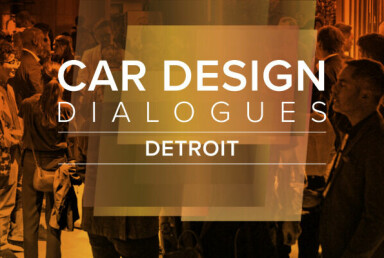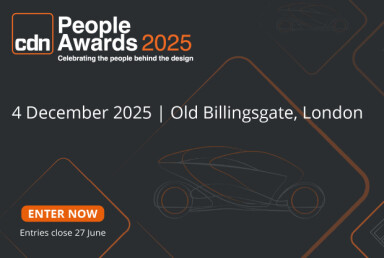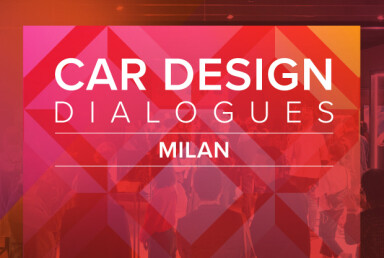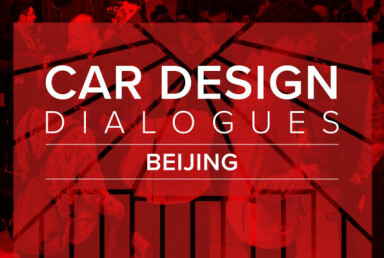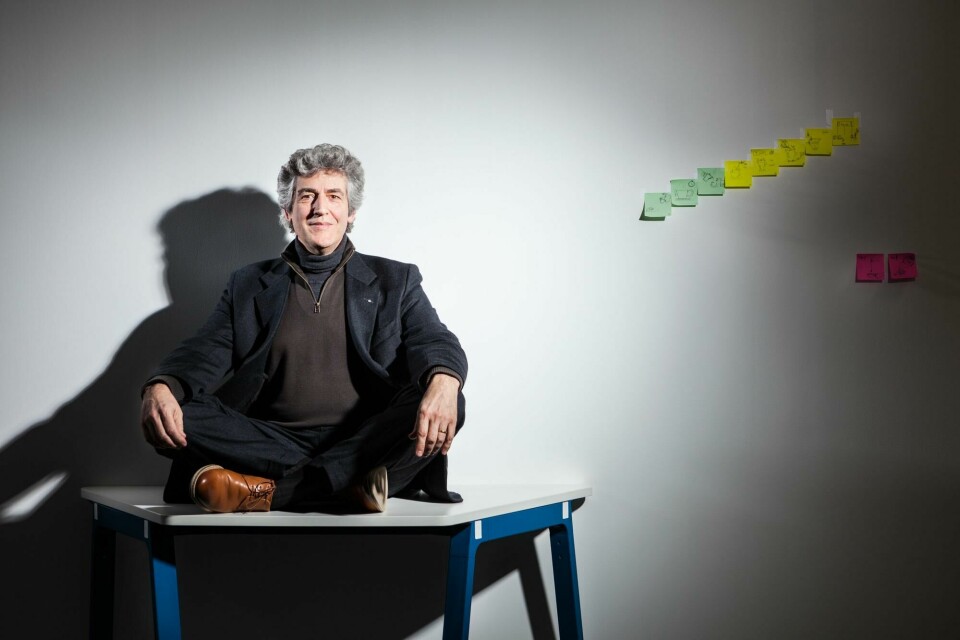
The Designers Pt 17: Nicola Crea, Coventry University
“We don’t need traditional designers, we need people with new perspectives and open minds”
The car industry is in trouble and the bigger companies will have the biggest difficulty changing. It may be that an experienced car designer is not as useful today as a young kid who is totally open-minded and who is going to design things in a different manner. This is a drastic and historical change.
We know for sure that human bodies are going to be integrating with cars, they’re going to work as part of the car, we’re going to have sensors around our bodies, and cars are going to be reacting to us. You know the ‘internet of things’… well, the first ‘thing’ will be in the car. We’re going to be in cars often, so our relationship with that product and other products is going to be very intense.

Nicola Crea, Coventry University
A car that showed some contact with this new world was the autonomous Vision Tokyo concept by Mercedes. I don’t think it’s the right answer at the moment because it’s just one try, but at least they’ve tried to get into that subject.
Cars like the Tesla, they’re a brilliant start, still very conservative in terms of shape, but the technology is good. Cars are going to be much simpler, much lighter and have more room inside, they’re going to be totally different.

Work by Coventry student Sina Rahmani
The problems we’ve been talking about are present in carmakers’ daily activities. They have a tendency to go in a direction slowly, but the changes are so big I’m afraid they’re not going to reach it. I expected in 2015 to see something already happening, and I expect it to happen next year, but I’m not sure.
We have students saying: ‘I’m designing an Apple car, a Google car,’ they’re already in that frame of mind. They don’t believe a Jaguar or a Lamborghini could be a car of the future.

Work by Coventry student Kevin Purcell
If this is going to happen tomorrow there’s not going to be a life for conventional cars anymore. If someone sells a Tesla for the price of a cheap car, no question. Sooner or later, it will happen very quickly. We already know that oil is going to finish and we have many other important things to do with oil before it ends.
More generally, there was a feeling that we’ve got into a period where we’re over-styling things. ‘Form follows function’ seems quite outdated at the moment. I’ve seen things done not for a practical reason but just for aesthetic purposes. I understand this, I have nothing against it, but to me it has got to a point where it is a bit too much. So many things I’ve seen are free aesthetic expression and not really functional attributes for products.

Work by Coventry student Arthur Nustas
I realise that there is a tendency to look for something new for its own sake. There is a sort of an anguish to create something absolutely new. Since we have a lot of cars and a lot of people today, it’s becoming more difficult. The car industry is at a turning point. We know very well that in the next five to ten years, cars are going to become totally different products, and I know from the industry that most of the people they are looking for are not typical car designers. Students coming here that want to design a red sports car are a little bit passé. I’ve been working with an Indian company and their culture does not have the same background in terms of automotive design. A sporty and noisy car is not as appealing as in Europe. They only look at the car as transportation and want it to be as comfortable as possible.
Globalisation has brought up a lot of markets that have a totally different car history. China, India and the South American continent all have a different interpretation of cars. We can no longer just rely on our history in order to make cars. One of the most important things to do to attune to other cultures is to create very international teams.

Work by Coventry student Oliver Cattell
We are very happy that most of the students coming here are from China, the Middle East, Central Europe and South-East Asia. Most of them come from outside Europe, which is a really interesting thing because we are trying to learn from them too. We are trying to see what they expect from a car. I think that kind of experience is invaluable.
In the future a lot of people are going to build cars – not cars any more, but transportation, we have seen little signs, Google cars, autonomous vehicles, etc. That whole culture of ‘the automobile’ is going to shrink and we’re going to see new companies making cars in a totally different manner.

Work by Coventry student Kim Byungchul
We’re going to make transportation that has a lot of extra qualities, which takes into account technological development and new requirements. For a few years we’ve had the distinction between automotive and transportation design. My goal as a course director is to combine them again, so we’ll have people prepared for the future challenges, people that the industry will need.
We offer automotive research for the industry too through our advanced design studio, involving product development and strategic design. The car industry hasn’t realised how critical the situation is. It’s human – you can’t imagine what the future looks like – but we have a privileged situation here because we look at the future all the time.
It’s very difficult to make such a cultural jump in a very short time but it’s going to happen and I’m pleased to be part of it.

